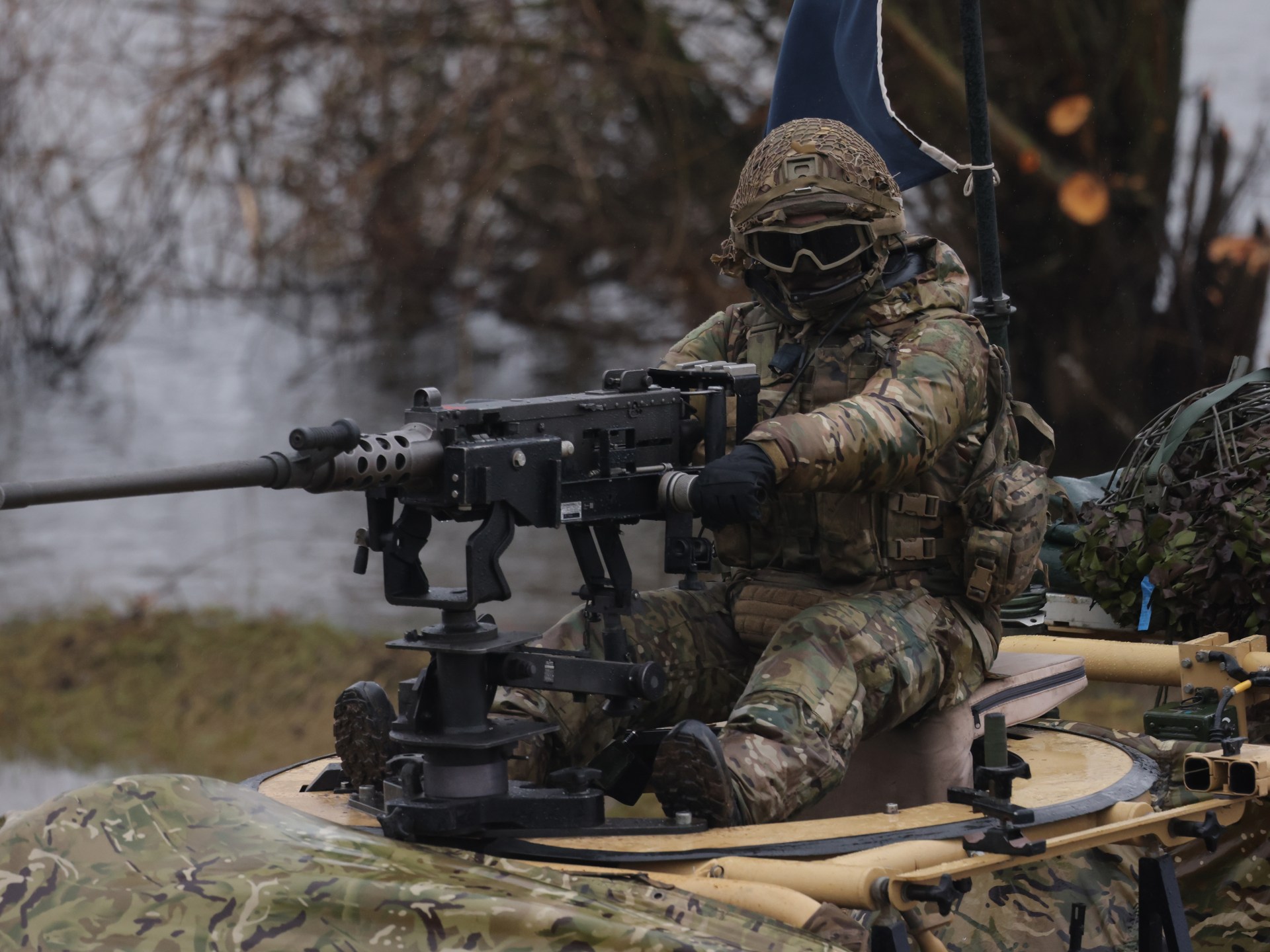A British soldier during maneuvers in Poland last month (Getty)
Pressure mounted on the British government to suspend arms exports to Israel, two days after an Israeli raid in Deir al-Balah in the Gaza Strip, which resulted in the killing of 7 employees, including 3 Britons, of the American charity World Central Kitchen.
Two opposition parties and a number of legislators, including former British National Security Advisor Peter Ricketts - who now holds a seat in the unelected British House of Lords - and the Scottish National Party, renewed demands for suspending arms export licenses to Israel.
"I think it's time to send that signal," Ricketts told the BBC. He added that there is now "ample evidence that Israel has not paid sufficient attention to fulfilling its obligations regarding the safety of civilians."
For its part, he urged the Scottish National Party - which is represented by 43 deputies in the House of Commons - to summon representatives during the Easter holiday to discuss this issue and vote on it.
Britain's strategic licensing criteria stipulate that weapons should not be exported when there is a "clear risk" that they could be used to violate international humanitarian law.
London has approved more than $614 million worth of arms sales to Israel since 2015, under so-called single-issue licences, while companies are exporting more weapons under open licences, according to arms control groups.
The same source says that this includes contributing key equipment worth tens of millions of pounds for US-made F-35 fighter jets that were sold to Israel.
Sunak doesn't care
On the other hand, Prime Minister Rishi Sunak appears to be indifferent to these demands, as he told The Sun newspaper on Wednesday that London has a “careful export licensing system.”
He said, "There is a set of rules, regulations, and procedures that we will always follow," without providing further details on how to apply them in light of what Israel did.
Foreign Secretary David Cameron has been repeatedly invited to publish an internal legal advisory opinion from his department on arms exports, but the Foreign Office has so far refused to do so.
If the department decides that there is now a clear risk that Israel may use the weapons in a "serious breach of international humanitarian law", Cameron will recommend to the Department for Business and Trade that the licenses be suspended.
On the 27th of last month, more than 130 members of the British Parliament called in a letter to the Foreign Minister and the Minister of Business and Trade, Kimi Badenoch, to impose a ban on arms sales to Israel, according to the British newspaper “The Guardian”.
Source: French

